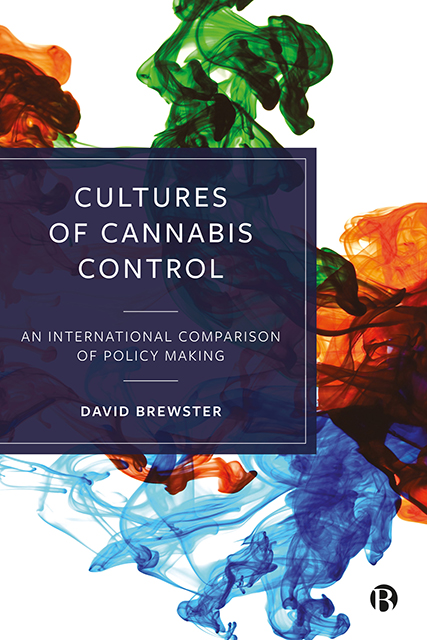Book contents
- Frontmatter
- Contents
- List of Tables
- About the Author
- Acknowledgements
- 1 Introduction
- 2 Cannabis Policy in Global Perspective
- 3 Sociopolitical Change and Cannabis Control
- 4 Problematizing Cannabis
- 5 The ‘Primeval Soup’ of Policy Proposals
- 6 The Political Environment and Windows of Opportunity
- 7 Beyond the National: Policy Negotiation, Resistance and Subversion
- 8 Cultures of Cannabis Control
- 9 Conclusions and Future Directions
- Appendix
- Notes
- References
- Index
5 - The ‘Primeval Soup’ of Policy Proposals
Published online by Cambridge University Press: 16 June 2023
- Frontmatter
- Contents
- List of Tables
- About the Author
- Acknowledgements
- 1 Introduction
- 2 Cannabis Policy in Global Perspective
- 3 Sociopolitical Change and Cannabis Control
- 4 Problematizing Cannabis
- 5 The ‘Primeval Soup’ of Policy Proposals
- 6 The Political Environment and Windows of Opportunity
- 7 Beyond the National: Policy Negotiation, Resistance and Subversion
- 8 Cultures of Cannabis Control
- 9 Conclusions and Future Directions
- Appendix
- Notes
- References
- Index
Summary
Introduction
As discussed in the previous chapter, the identification of something as a problem that requires a policy response is not an objective process. Even in very similar contexts, problems can take different forms. According to the multiple streams model, those problematizations that make it onto the policy agenda then become attached to ideas and proposals in the policy stream (Kingdon, 1995). Problems and policies cannot be said to be inherently connected, nor is it the case that a problem necessarily predates its corresponding proposal. Some policy proposals that have remained dormant for years or decades can suddenly arise and mesh with policy problems when a suitable window of opportunity presents itself. A good example here is that of cannabis legalization, which, as a policy idea, has existed for a considerable period of time but has only recently been taken up as a serious policy option in some contexts across the globe. The sense is that a number of policy alternatives exist relatively independently of problems at any given time in what Kingdon (1995) describes as the ‘primeval soup’ of policy. Which proposals are taken seriously in relation to a problem deemed to warrant a response is based on a number of considerations, such as: the expressive and instrumental dispositions of political parties and politicians; the perceived palatability to voters and stakeholders; the alignment with research and expertise; and the legal, financial and organizational feasibility.
This chapter concentrates first on aspects of the policy stream – grouped here as political feasibility, research and expertise and technical feasibility – in the main cases of England & Wales and the Netherlands. Then the dynamics of these three aspects are elucidated in two further cases: Australia and Spain.
Returning cannabis to its ‘rightful position’ in England & Wales
In England & Wales in the mid to late 2000s, the process of selecting policy options in response to a recognized set of problems related to cannabis appeared to counter the rational model of policy making, whereby a plethora of possible alternatives are considered logically and systematically before being narrowed down.
- Type
- Chapter
- Information
- Cultures of Cannabis ControlAn International Comparison of Policy Making, pp. 86 - 104Publisher: Bristol University PressPrint publication year: 2022



